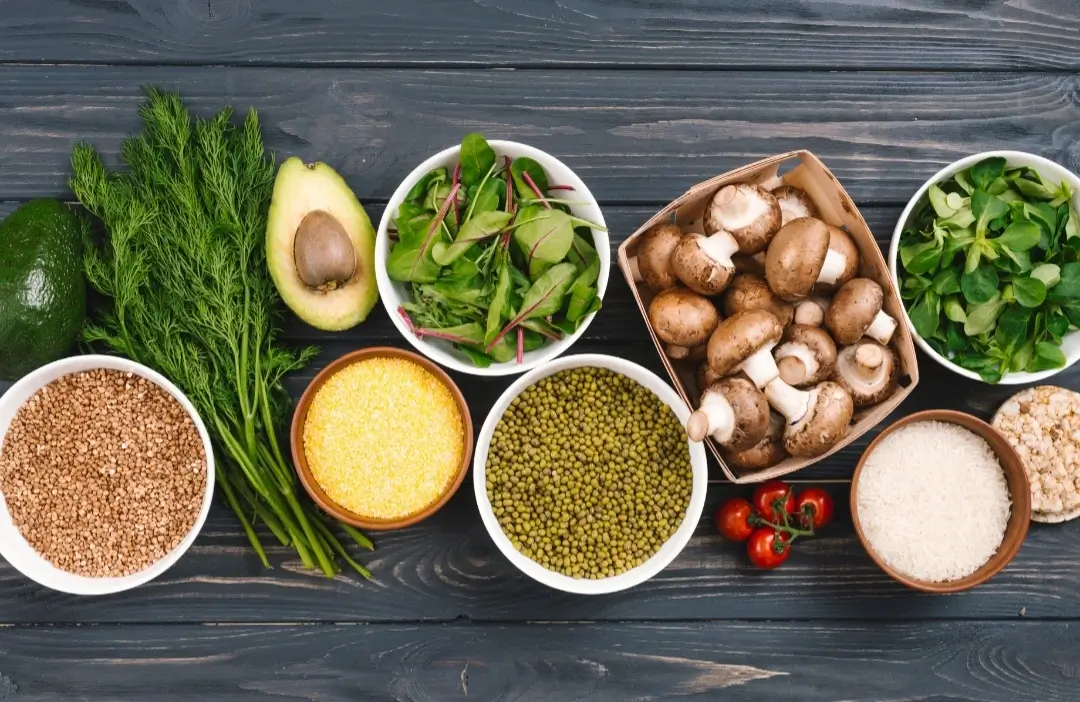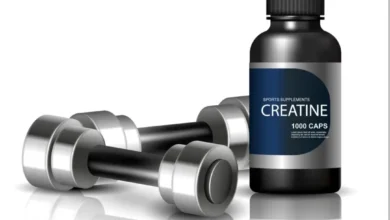3 plant protein sources

Having a variety of plants protein sources helps meet the body’s daily protein needs, as the body needs a constant supply of protein to perform functions such as building muscles, neurotransmitters, and hormones.
There are many plant foods that contain a high percentage of protein, such as some types of vegetables. This includes legumes such as beans, lentils, and peas, which are considered plant sources of protein because they contain high levels of protein. They also contain other nutritional elements such as vitamins, minerals, fiber, and potassium. It is one of the most important plant sources of protein we mention the following:
Sources of plants protein: 1- Legumes
- Beans
Beans are a good source of protein, as each cooked cup of beans contains 15.3 grams of protein. It also contains primary amino acids, so beans are considered one of the plant sources of protein, and athletes can add them to the diet due to their richness in protein and other nutrients such as fiber. They also contain Folic acid, which is a particularly important vitamin during pregnancy because it plays a role in the growth of the fetus.
- lentils
Lentils are one of the plant sources of protein, and this is what makes them a favorite among nutritionists because they are full of plant proteins. One cup of lentils provides 17.9 grams of protein, which is approximately 30% more than the protein found in two large eggs. It is also rich in vitamins and minerals such as folic acid. Iron, magnesium and potassium.
- Green Peas
Green peas contain good proportions of protein, which makes them one of the nutritional components that should be added to the diet, as one cup of them covers more than 20% of the daily needs of vitamins A, C, and K, in addition to B vitamins, folic acid, and thiamin.
- Fava Beans
Beans are one of the plant sources of protein , as each cooked cup of fava beans contains 12.9 grams of protein. It also contains good proportions of primary amino acids such as leucine, lysine, phenylalanine, and valine. Fava beans are characterized by a buttery taste and creamy texture, in addition to being rich in 15 types of… Minerals including magnesium, copper, potassium and zinc.
- Hummus
Chickpeas are a plant source of protein , as they contain good levels of protein. One cooked cup of chickpeas contains 14.5 grams of protein. Chickpeas can be added to a salad to enjoy a healthy and delicious dish rich in nutrients essential for a healthy body.
read more: The benefit of walnuts
Sources of plants protein: 2- Vegetables
- spinach
Spinach contains a smaller amount of protein than the amount of vegetable protein found in legumes, but it contains a good amount compared to other non-starchy vegetables, as each cooked cup of spinach contains 5.35 grams of protein. For example, one cup of spinach contains 260% more protein than A cup of cooked zucchini. Spinach is an important leafy vegetable in a healthy diet. It is a good source of a number of vitamins and minerals, such as vitamins A, C, K, iron, calcium, and magnesium.
- Artichoke
It is also called artichoke, and it is one of the plant sources of protein , as artichoke contains vegetable protein estimated at about 4.9 grams per cooked cup, and artichoke is distinguished by its high fiber content, as one cup of artichoke provides an amount of 9.69 grams of fiber, which covers 34% of The daily value that the body needs, in addition to that it contains several vitamins such as C, K and folic acid, and it is also rich in minerals such as magnesium and potassium.
read more: 8 amazing benefits of macadamia
- Broccoli
Broccoli is one of the healthy vegetables that should be added to a healthy diet. In addition to containing many minerals, vitamins, and fiber, it contains a very small percentage of calories, so nutrition experts advise eating it in order to maintain an ideal weight. Broccoli is also one of the Plant sources of protein : 100 grams of broccoli contain 3.5 grams of protein.
Other plant sources of protein include :
- Green beans: 100 grams of green beans contain 2.35 grams of protein, in addition to containing a good percentage of fiber and vitamins.
- 100 grams of cauliflower contains 3.54 grams of protein, in addition to other elements that make it of good nutritional value.
read more: benefits of nuts for pregnant women
Sources of plants protein: 3- Nuts
- Almonds: One cup of dry almonds contains 29 grams of protein, and two tablespoons of almond butter contains 6.7 grams of protein.
- Cashews: In addition to the delicious taste of cashews, they are also a plant-based source of protein . One cup of dry roasted cashews contains 21 grams of protein, and two tablespoons of cashew butter contain 3.9 grams of protein.
- Pistachios: One cup of dry roasted pistachios contains 26 grams of protein, so they are considered a vegetarian source of protein. . Two tablespoons of peanut butter also contain 6 grams of protein.
- Walnuts: Every 28 grams of dry roasted walnuts contains 4 grams of protein, and two tablespoons of walnuts contain 5 grams of protein.





